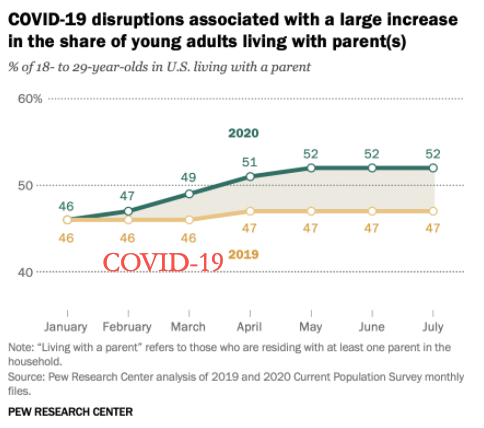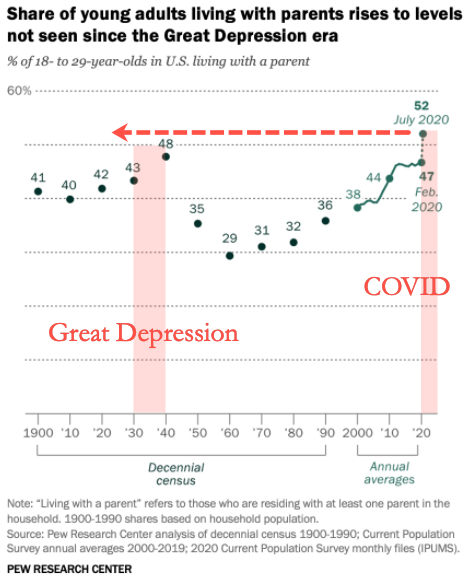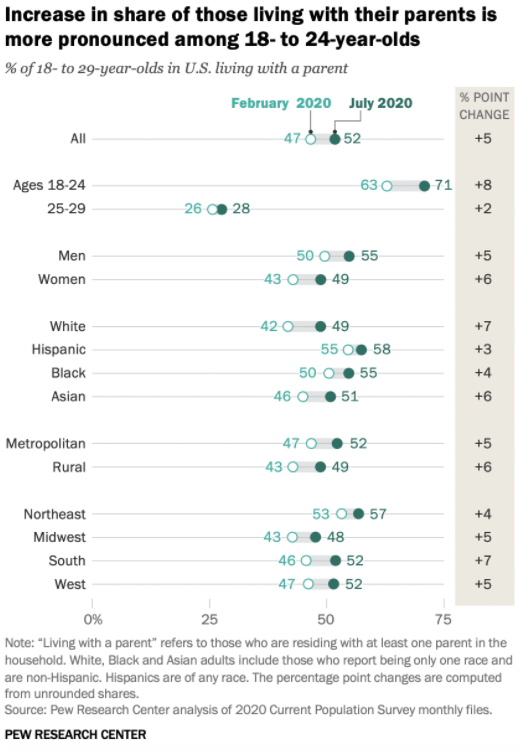Wall Street and the Trump administration have been in no rush to acknowledge the deep economic scarring from the virus-induced downturn that is set to prolong the recovery well into 2021. Readers, by now, understand the probabilities of a “V-shaped” recovery for the real economy for the remainder of 2020 are quickly fading.
Stories of permanent job loss and the collapse of small businesses are gaining traction in the mainstream press in Sept. as the stock market rolls over. Another dose of economic reality could stun Americans as the total number of young adults living at home has just surpassed levels not seen since the 1930s Great Depression.
A new report via Pew Research Center explains a record amount of young folks have moved back home because the virus pandemic has crippled their finances. As of July, 52% of millennials were living at home, up from 47% in Feb. At least 2.6 million youngsters over the Feb. to July period returned home, pushing up the total to 26.2 million.
“The number and share of young adults living with their parents grew across the board for all major racial and ethnic groups, men and women, and metropolitan and rural residents, as well as in all four main census regions. Growth was sharpest for the youngest adults (ages 18 to 24) and for White young adults,” Pew said.
The share of young adults living with their parents broke out to new highs. The previous record was set at 48% in 1940, according to Pew data, which was one year into World War II.
The increase of youngsters moving back home was seen across all races, genders, and regions. White millennials moved home at the fastest rate (from 42% in Feb. to 49% in July), black youngsters (50% to 55%), Asians (46% to 51%), and Hispanic people (55% to 58%), all experienced noticeable increases.
“Young adults have been particularly hard hit by this year’s pandemic and economic downturn, and have been more likely to move than other age groups,” the study added.
This new living arrangement is set to damage the economy and result in a prolonged recovery. But the trend of them returning home (read: here & here & here) has been underway for years, though the virus pandemic has only supercharged it.
The number of youngsters moving home is expected to rise through 2020 as the economic downturn shows no signs of abating as a double-dip recession due to a fiscal cliff looms.


